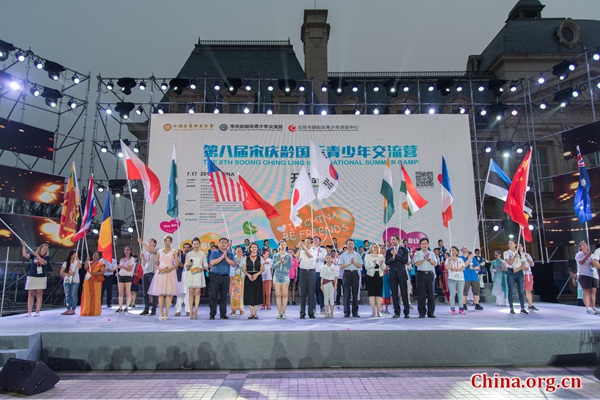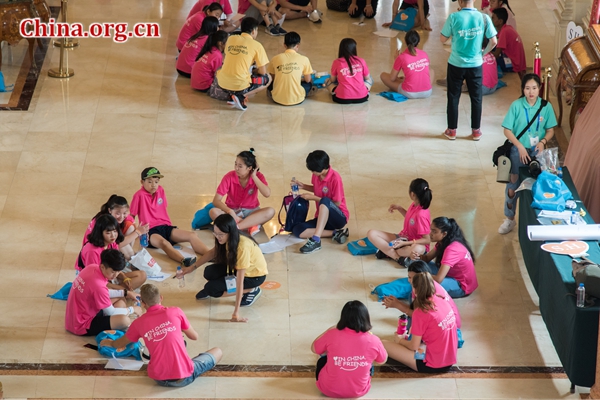China should improve its investment and market environment, accelerate opening up to the outside world and lower operating costs, Chinese President Xi Jinping said Monday.
The country should “create a stable, fair, transparent and predictable business environment, and speed up efforts to build an open economy in a bid to promote the sustainable and healthy development of the Chinese economy,” Xi said at a meeting of the Central Leading Group on Finance and Economic Affairs.
An important goal of building an open economy is to stimulate improvement of domestic institutions and laws for higher efficiency and greater competitive strength in the global market, said the president.
Foreign investment has played a significant role in China’s economic development, promoting reasonable allocation of resources and driving market-oriented reforms, he told the meeting.
China should continue to make good use of foreign investment to advance supply-side structural reforms, upgrade the economy, and catch up with global technology development, Xi said.
He urged faster efforts to lift restrictions on foreign access to and ownership in sectors such as child care, elderly care, architectural design, accounting, auditing, commerce, logistics, e-commerce, general manufacturing and services.
The “negative list” approach on foreign investment management, which has been adopted in the country’s pilot free trade zones, should be expanded to the whole nation as soon as possible, he said.
A negative list approach identifies sectors and businesses that are off-limits or restricted for investment.
Xi also called for faster work to unify laws and regulations on domestic and foreign businesses and make new fundamental laws on foreign investment.
Laws, rules, and policies out of tune with the overall direction and principle of opening up should be abolished or revised within a time limit, and national treatment in laws and policies should be granted to foreign-funded companies after they enter the market, the president said.
Xi urged megacities like Beijing, Shanghai, Guangzhou, and Shenzhen to take the lead in improving business environment, demanding moves to reduce inspections and fines on companies and ban illegal fee charging.
He stressed the importance of protecting intellectual property rights (IPR), calling on authorities to better laws and regulations, improve the quality and efficiency of intellectual property examinations, and speed up institutional improvement for IPR protection related to emerging sectors and new business types.
Wrongdoing should be punished more severely so that IPR infringers will pay heavy prices, said the president.
Speaking of the financial sector, Xi said those areas that help protect consumers’ rights and interests, promote orderly competition, and prevent financial risks should be opened up faster.
He demanded efforts to advance opening-up of the capital account in an orderly manner, and steadily push the yuan to become an international currency.
The yuan’s exchange rate formation mechanism should be improved, and the currency’s value should be kept basically stable at a reasonable and balanced level, Xi said.
To keep up with the pace of financial opening up, China must have a strong regulatory capability, the president noted.
He urged financial regulators to learn from international experience, address weak links and improve the way of regulation.
On foreign trade, Xi stressed expanding imports while stabilizing exports to promote balance of payment under the current account.
He demanded measures to make foreign trade more liberalized and convenient, saying institutional costs of import should be lowered, quarantine and custom clearance be streamlined, and that companies’ complaints be better addressed.
Authorities must study reducing tariffs on certain consumer goods and encourage the import of specialty products, Xi said.
A market environment featuring fair play should be created in the country, giving businesses equal treatment in tariff collection, import quarantine and marketing to let consumers and the market have the say, according to the president, who is also head of the leading group.
The meeting was also attended by Premier Li Keqiang, who is deputy head of the group, and Vice Premier Zhang Gaoli, a member of the group.
read more




